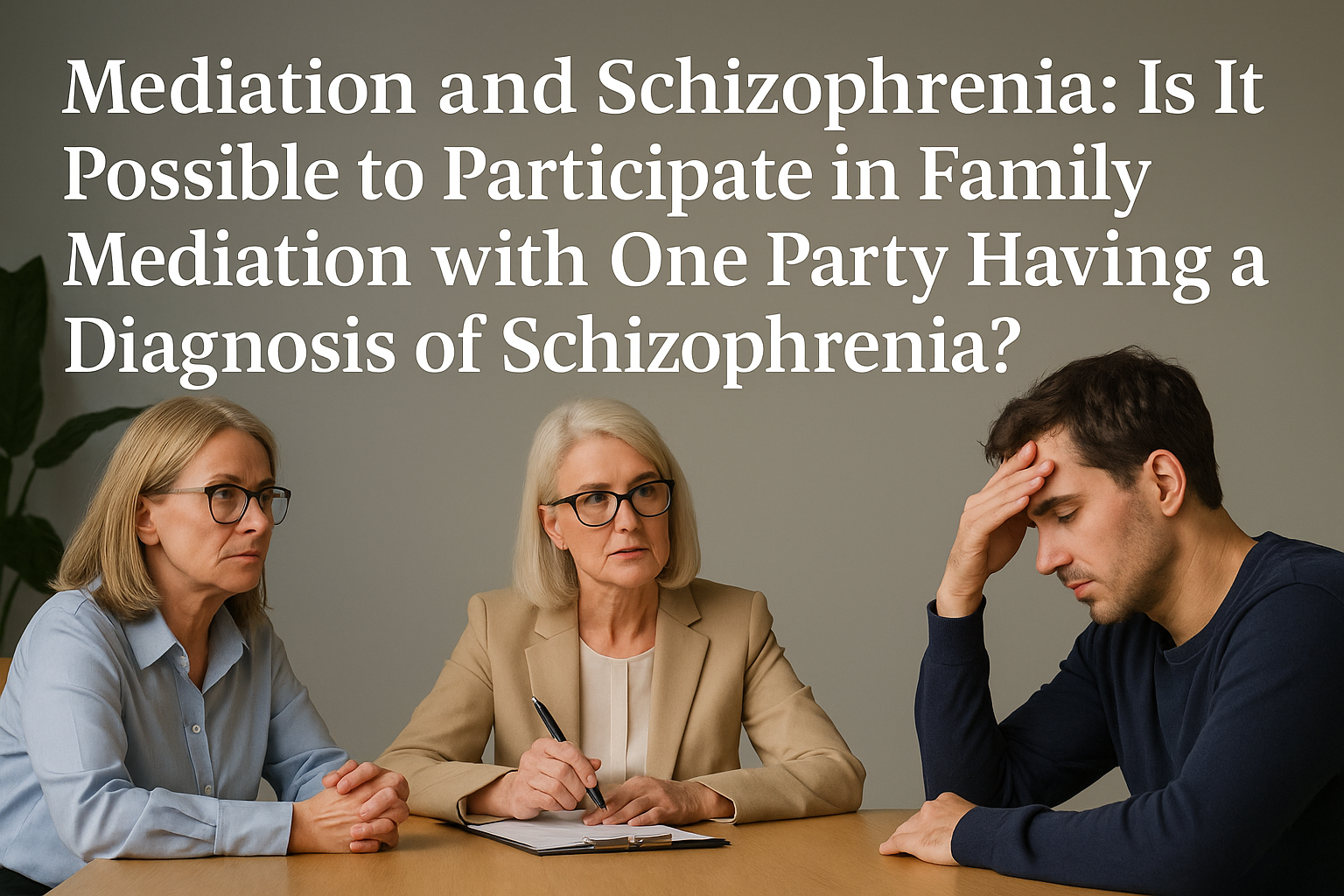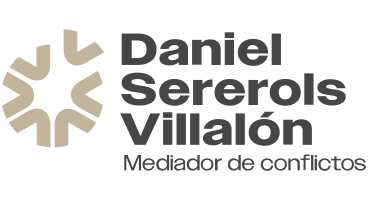
04 Oct Mediation and Schizophrenia
Mediation and Schizophrenia: Is it possible to participate in family mediation when at least one of the parties has a diagnosis of schizophrenia?
Family mediation is a voluntary, confidential dialogue space assisted by an impartial third party, aimed at improving communication and resolving conflicts within the family.
But what happens when a mental illness such as schizophrenia is present in this context? Important questions arise: can a person with this diagnosis request mediation? And can they be called as a party in a family mediation process in Spain and Catalonia?
What is schizophrenia?
Schizophrenia is a serious and chronic mental disorder, characterized by alterations in the perception of reality (hallucinations, delusions), disorganized thinking, and difficulties in social interaction. Not all people with schizophrenia experience the same symptoms or with the same intensity. With appropriate medical treatment and psychosocial support, many can live independently and participate actively in society.
Legal capacity and capacity to participate in mediation
In the Spanish legal framework, following Law 8/2021, which reforms civil and procedural legislation regarding disability, the legal incapacitation as previously understood has disappeared. Today, all people, regardless of their mental health condition, have legal capacity on equal terms.
This means that a person with schizophrenia can initiate family mediation (that is, request it) as long as they are able to understand the nature of the process and participate in it. Likewise, they can be a called party if another family member requests mediation.
The key lies in the capacity to act at the specific moment: if the person is going through an acute episode that severely limits their understanding or communication, it will probably not be appropriate to start mediation until the situation stabilizes.
Family mediation and the limits of participation
In a family mediation, the mediator must ensure that both parties can express themselves under equal conditions. Therefore, if a person with schizophrenia:
- Understands the process.
- Can express their will and preferences.
- Wishes to participate freely.
Then there is no legal impediment to their participation.
On the other hand, if the illness significantly limits communication or decision-making at that time, the mediator must assess whether to continue, postpone, or seek additional support.
Legal framework in Spain and Catalonia
- In Spain, Law 5/2012 on mediation in civil and commercial matters establishes that mediation is voluntary and requires informed consent.
- In Catalonia, Law 1/2001 on family mediation in Catalonia specifically regulates family mediation and requires that parties participate consciously and freely.
- Law 8/2021 introduces the principle of supports for people with disabilities, strengthening their right to participate in procedures such as mediation.
In practice, this means that a person with schizophrenia can exercise their right to participate in family mediation, as long as they receive the necessary support to understand and decide.
Final reflection
Family mediation can be a valuable space to improve internal relationships, even when one of the parties lives with schizophrenia. The challenge is to ensure that the person participates under conditions of equality, without discrimination, but also with the professional prudence necessary to guarantee that the process is truly useful and respectful of the situation of all family members.
📞 If you would like more information or need support in a family mediation process:
Daniel Sererols Villalón
Tel. 661.463.306 – ✉️ daniel@mediadorconflictos.com
